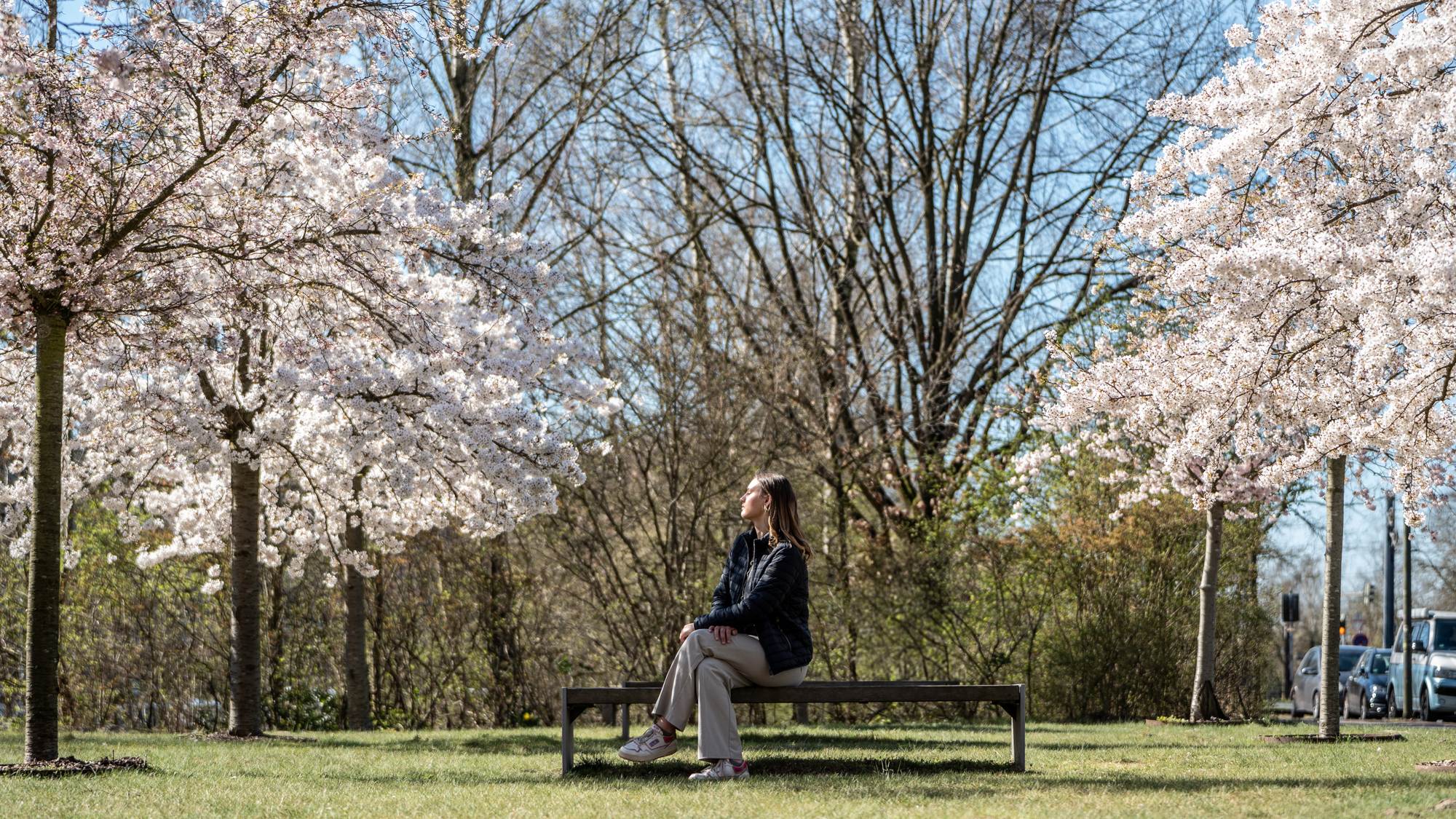
© Annemarie Popp / Universität Bremen
Mindfulness for Students: Stress Less, Focus More
The Psychological Counselling Centre (PBS) explains how mindfulness exercises can help you deal with stress and overload
The semester has barely begun but you’re already feeling stressed. You rush from one lecture to the next, then to the project group who are waiting for you, and on top of that, you still have to find a birthday present for a friend. Even the breaks in between don’t help you relax, because your thoughts are spinning inside your head – the stress just won’t let up. In times like these, practicing mindfulness can pay off. Svenja Heinemann from the Psychological Counselling Centre (PBS) of the Studierendenwerk Bremen tells us more about mindfulness, why it should not be confused with relaxing, and how you can become more mindful as you go about your daily life. She is offering an introductory workshop on this topic on June 11 and 25.
From her counseling sessions at PBS, Svenja Heinemann has observed that “university students are under a lot of pressure to perform, and the courses and curriculum can be demanding. On top of that, they are going through a fast-paced phase of life with many changes, such as moving out of their parents’ home and into a new social environment. So many students experience high levels of stress.” Mindfulness exercises can help to reduce this stress. “We understand mindfulness as the ability to be consciously present in the very moment, to direct our focus of attention, and to observe our feelings with some inner distance and without judgment,” the counselor explains. According to Svenja Heinemann, this requires an open mind to view the world without preconceptions – a “beginner’s mind” – and some practice. In her workshop, the PBS counselor works with participants to take a look at how they normally react to stress and what alternatives are available: “Mindfulness can help people become more aware of their own psychological stress limits, strengthen their emotional resilience, and improve their concentration. Since stress factors are individual, mindfulness exercises can positively change the way you experience stress,” says Svenja Heinemann. However, mindfulness exercises should not be confused with relaxing: “Relaxing is more of a pleasant side effect. The goal is rather to achieve inner peace and arrive in the present moment.”
Five Everyday Mindfulness Exercises
For those who are not attending the workshop, Svenja Heinemann shares some practical tips and mindfulness exercises that can help you reduce stress and live each day more consciously.
1. Focus on Your Senses
Every day, we do many things automatically, such as washing the dishes or taking a shower. Our mind often wanders and we start to dwell on things. The counselor has a tip to help you to refocus on the present moment: “You can try concentrating on the current activity with all your senses. For example, when you are brushing your teeth: How does the toothbrush feel in my mouth? How does the toothpaste taste?”
2. Mindful Breathing
One thing we always have with us is our breathing – perfect for a little mindfulness exercise. Svenja Heinemann suggests breathing consciously for thirty seconds. “This includes accepting feelings of drowsiness or noticing when your mind wanders. Keep bringing your focus back to your breathing.”
3. Establish Morning and Evening Routines
The PBS counselor offers a recommendation especially for those whose week lacks consistency due to varying class times. “Journaling or a short meditation in the morning or evening helps you to pause and not get lost in the hustle and bustle of everyday life.”
4. Take a Mindfulness Break
Whether waiting for an appointment or on the way to university – many people’s first reflex is to reach for their smartphones. “By consciously avoiding distractions and mindfully observing what is around you instead, you can often discover new things. This can help break the cycle of stress,” Svenja Heinemann recommends.
5. Check In with Your Body
Similar to the breathing exercise, this exercise involves pausing and focusing in on the body. “During study breaks, you can tune in to and ask yourself: Am I hungry? Is any part of my body particularly tense? Another method is the body scan, where you consciously notice and explore each part of your body, and notice how it feels.
Introductory Workshop on Mindfulness
The workshop will take place in two sessions on June 11 and 25, 2025, from 4 to 6 p.m. in the group room of the Psychological Counseling Center (PBS) of the Studierendenwerk Bremen and is limited to eight participants. Students of all public universities in Bremen State can participate after registering with the PBS office. Participation is free of charge. Further information and contact details are available on the PBS website